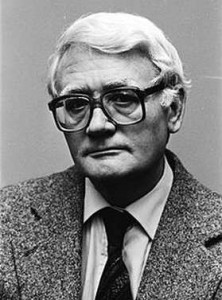 The Flemish theologian, Edward Schillebeeckx O.P. (1914-2009), developed a hermeneutical theology based on his reading of philosophical hermeneutics in the twentieth century and with an experientially mediated anthropology that eschews antiquated Neo-Scholastic terminology.
The Flemish theologian, Edward Schillebeeckx O.P. (1914-2009), developed a hermeneutical theology based on his reading of philosophical hermeneutics in the twentieth century and with an experientially mediated anthropology that eschews antiquated Neo-Scholastic terminology.
Schillebeeckx based anthropology on the concept of the “limit experience” and the contingency human beings. The experience of contingency is, for Schillebeeckx, an ontological claim to the precondition for the interpretation of being.
However, contingency itself can only be considered an ontological structure a posteriori because it arises in and through the interpretation of other experiences. The “absolute limit” of human experience must include Schillebeeckx’s famed “contrast experiences,” but is not constituted by them.
Recognition of that absolute limit is a mediated experience that is the basis for experience in general, and therefore the interpretation of experience. This paper will detail how human contingency and consciousness are linked by temporality and how the limit can be fruitful for a hermeneutical anthropology that does not lead to a dualistic conception of either human beings or the sensible world.
Autor: Daniel Minch.
